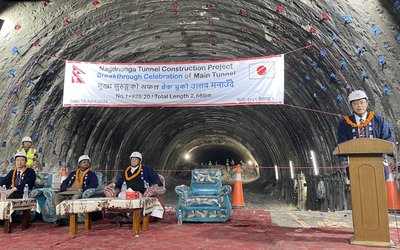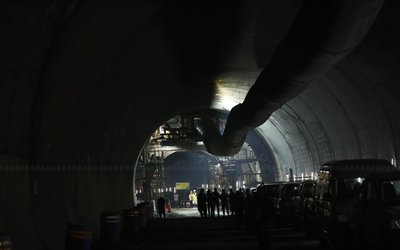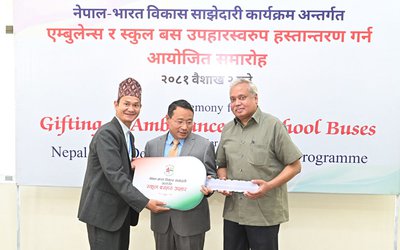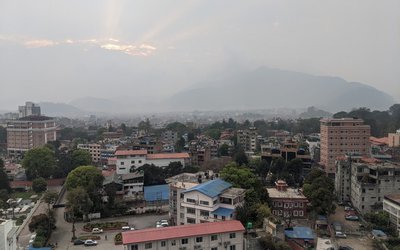At a time when the global communities are talking about the need to benefit from the green economy, Nepal has an example to offer how going green can be good. With its worldwide reputation in forest management earned by the community forest user groups and successful conservation of the national parks, Nepal has experiences to share with the world how mobilizing the people at the grass root level pays off.
After a decade long experiment in the community forestry sector, more than 20,000 forest user groups are taking care of a large number of forests, generating employment opportunities as well giving economic benefits to the grass root level people.
Till a decade ago people considered the expansion of the protected areas as a burden to the community but now the buffer zone concept has changed the livelihood of the entire conservation areas where people are reaping the benefits from going green. Nepal’s national parks are good examples of resource generation through management of natural resources.
As Nepal celebrated the World Environment Day with the slogan for encouraging green economy and sustainable development, it sent a message that Nepal’s overall economic prosperity largely depended upon maintaining its entire eco-system.
“I am happy that we have celebrated the World Environment Day throughout the country by raising awareness at the community level as well as highlighting the importance of the green economy in the context of Nepal,” said Uddhav Banskota, head of environment division of the Ministry of Science Technology and Environment.
The UN Environment Programme defines Green Economy as one that results in improved human well-being and social equity, while significantly reducing environmental risks and ecological deficiencies. In its simplest expression, a green economy can be thought of as one which is low carbon, resource efficient and socially inclusive.
Practically speaking, a Green Economy is one whose growth in income and employment is driven by public and private investments that reduce carbon emissions and pollution, enhance energy and resource efficiency, and prevent the loss of biodiversity and ecosystem services. These investments need to be supported by targeted public expenditure, policy reforms and regulation changes.
But what does all this mean for you? Well, if the Green Economy is about social equity and inclusiveness, then technically it is all about you! The question therefore asks you to find out more about the Green Economy and assess whether, in your country, you are being included in it.
“To learn more about the Green Economy bookmark the World Environment Day website, or follow us on Twitter and Facebook, and we shall be unraveling the concept of what the Green Economy really is and what it means to you ahead of World Environment Day,” says an exhortation for the social media users.
Others too agree that Nepal has many potentials to benefit a large number of population from greening the economy.
“Nepal has an immense possibility to uplift the life of millions of people through green economy. The first step will be to mobilize the over 20,000 forest user groups,” said Dr. Dinesh Chandra Devkota former vice chair of the National Planning Commission.
World Environment Day
Like in the past, Nepal celebrated the World Environment Day with different programs this year as well. The focus, however, shifted to the grass root level or the district level. One of the aims of this year’s program was to carry the message at the grass root level and highlight the importance of going green.
The 2012 theme for the World Environment Day is Green Economy: Does it include you? Evidently, there are two parts to this theme and the first tackles the subject of the Green Economy. This is where some people shut off their minds because they find the concept of the Green Economy a little too complex to understand.
UNEP launched the Global Environment Outlook 5 (GEO 5) on 6 June. Three years in the making and involving close to 300 experts, GEO is the UN's most comprehensive environmental assessment. In the run-up to Rio+20, GEO 5 will analyze the state of the global environment and track global progress towards international sustainability targets.
The remarkable turnaround in forest management in Nepal is directly attributable to the benefits generated for local groups in the communities.
- TANAHU HYDROPOWER PROEJCT: A Significant Achievement
- Apr 15, 2024
- AMBASSADOR HANAN GODAR: Sharing Pain With A Nepali Family
- Mar 30, 2024
- VISIT OF KfW AND EIB TO NEPAL : Mission Matters
- Mar 25, 2024
- NEPAL BRITAIN SOCIETY: Pratima Pande's Leadership
- Mar 24, 2024
- NEPAL ARMY DAY: Time To Recall Glory
- Mar 15, 2024
















